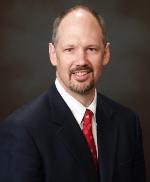As someone who has recently returned to the U.S. after leading an educational institution overseas, I find it strangely sad that the liberal arts gets bad press here at home. What is it about critical thinking and writing across a range of subjects that turns people off? Do they seem impractical? Too ideological? Too academic? Does the word “liberal” suggest leaning to the left? Does the word “arts” suggest not scientific or even not performance
oriented? Is it the association with ivy and ivy like institutions?
Or does the idea of the liberal arts seem too unspecialized for our times? And does the time required to study history, language, math and literature seem unnecessarily protracted, costly and not necessarily resulting in a decent job? Is it the lack of preparedness necessarily to plunge into deep study of philosophical and literary ideas?
Likely the answer is all of the above, but it may be due to some habits of mind within the academy as well. Are colleges and universities addressing the critique of the liberal arts as wisely as they might? Do some academics have a false pride about the purity of learning, say in the humanities, and a denial of the applicability of the liberal arts to any discipline and profession? After all, a liberal arts perspective is arguably necessary for just about any
career. Or is it the narrowness of the business, scientific or musical communities that refuse to step outside the immediacy of the bottom line, the experiment or the performance and thus to realize that the most successful in their areas are those who question, analyze and outperform others who mindlessly do what is asked of them?
Whatever the source of the resistance, it is a supreme irony that just as many in the U.S. are questioning the value of a liberal arts degree or approach to various areas, there is a telling growth of interest in the liberal arts in areas of the world that are already or nearly outperforming the U.S.: in China, the Middle East, Mongolia, Central Asia and even in Western Europe. The American way of learning is catching on overseas just as it is being
deconstructed at home.
We should think carefully about the liberal arts and, at the very least, not throw the baby out with the bathwater. If we assume that the liberal arts is an approach to learning that can be utilized for a lifetime of career and personal development and is not necessarily a four year investment in abstraction, then maybe we’ll be less inclined to dismiss what has been one of the most important American inventions ever. If on the other hand we assume that a liberal arts is a kind of collegiate experience that costs fifty thousand dollars a year and is taught by academics that tilt to the left and are out of touch with current marketplace realities and student needs, then we’ll likely be more dismissive.
There is no question that colleges and universities with traditional liberal arts programs have to think hard about the way their programs are delivered to increasingly financially strapped and technologically sophisticated students. This applies to the liberal arts
core or general education courses that lead up to the major as well as to the academic major itself, whether it be a major in a liberal arts subject or a more professional one. Given the anxiety over career and job market, it is especially important nowadays that traditional liberal arts programs have practical components such as internships and service learning and that more professional programs have analytical and writing components such as senior theses. Whether traditional or professional, all programs need to look carefully at delivery systems for the new literacy.
There is no doubt that a good hard look at what and how we deliver a liberal arts education needs to be given. On the other hand we should recognize the greatness of the liberal arts college. Techniques may be outmoded; ideas set forth by entrenched educators may be desperately in need of updating; popular misunderstanding of the words liberal arts may need correction; the hubris of the old guard may need piercing; the cost of learning may need shrinking. But questioning the spirit of critical inquiry itself? This is the American way: we did not invent the spirit of questioning but we did develop the liberal arts college, and that is one of our greatest achievements. Does that invention need updating? Of course! And can we learn from how the liberal arts college is developing in other parts of the world? We had better.
Stevens Strategy takes the long view of the importance of the liberal arts. We see that the liberal arts college is an American invention intended to provide the opportunity for students to develop their critical, ethical and social capacities for a lifetime of success, creativity and service. We further recognize that not all colleges and universities can afford to stay “pure” in their commitment to liberal arts majors and need to accommodate learning to the demands of ourtime. We believe that a false dichotomy has been drawn between professional and liberal studies and that the mix of the two serves many students and institutions very well. We believe that the politicization of the liberal arts is dangerous for our country and affirm the apolitical non-ideological intention of the true liberal arts in an environment where a range of perspectives is entertained and matured. If the core of the liberal arts is critical thinking for wise decision making with application to thought and action for personal, professional and civic purpose across all professions and subjects, then the challenge for any college or university is to clarify how its liberal arts mission is to be pursued in ways that meet the demands of the marketplace without compromising the core values of an institution. Our experience overseas as well as in the U.S. gives us the breadth of perspective to provide practical and globally relevant advice about market sensitive program design that combines theory and practice in such a way that students can address a lifetime of new thinking with the entrepreneurial and leadership skills essential for success in the ever changing workplace. Our team is ready to assist institutions of higher learning with a hard look at the content and delivery of liberal arts and professional programs and to provide planning and advising that are essential for the sustainability of the American way of undergraduate learning.
We welcome your response to this blog and invite you to share your perspective on the value and the risks of a liberal arts education.
Ellen S. Hurwitz, PhD
President Emerita, American University of Central Asia
Senior Consultant, Stevens Strategy


 John Stevens, Ed.D.
John Stevens, Ed.D. Brendan Leonard, M.B.A.
Brendan Leonard, M.B.A.
Leave a Reply